Spirited Waters reminds us that even in the landscape of solitude, we are never alone.
Anchorage Daily News
A beautifully detailed account. Its difficult not to envy her as she forages with the otters and sleeps with the bears. Hahns fascination with all that surrounds her is contagious.
Sports Illustrated for Women
From riptides to storms, freighter wakes to imaginary dragons, [Hahn] encounters [them] with honesty, humor, and humility. Almost immediately, her narrative made me eager to travel beside her.
The Seattle Times
[Hahns] extensive knowledge of nature, native customs and legends, and the navigational history of the area nicely complement her personal experiences, while her eloquent writing allows readers to feel both the pain and the triumph of the journey.
Library Journal
Spirited Waters is a blend of adventure travel, natural history, personal discovery, and a celebration of the beauty and spirit of the Inside Passage.
Alaska Airlines Magazine
A very personal account of Hahns solo paddle from Ketchikan, Alaska, to Bellingham, Washington, the book includes compelling descriptions of the physical and mental adventures she navigated howling gales and howling wolves, real bears and imagined ones, swift tidal currents and dangerous waves.
Seattle Post-Intelligencer
[Hahn] finds beauty or usefulness in everything she encounters, be it animal, vegetable, or mineral. She convenes with the spirits of Northwest myth, greets otters and dolphins as equals.
Pittsburgh Tribune Review
FOR DAVID ARTHUR HAHN
journeyer, magician,
heyoka, and brother,
buried at sea.



THE MOUNTAINEERS BOOKS
is the nonprofit publishing arm of The Mountaineers Club, an organization founded in 1906 and dedicated to the exploration, preservation, and enjoyment of outdoor and wilderness areas.
2001, 2009 by Jennifer Hahn
Foreword 2001 by Brenda Peterson
All rights reserved
First edition, 2001; first paperback edition 2009
No part of this book may be reproduced in any form, or by any electronic, mechanical, or other means, without permission in writing from the publisher.
The Brandy Tree (Otters Song), words and music by Gordon Bok. Copyright 1967. Reprinted courtesy of Timberhead Music.
Published simultaneously in Great Britain by Cordee, 3a DeMontfort Street, Leicester, England, LE1 7HD
Manufactured in the United States of America
Copyeditor: Brenda Pittsley
Cover design: Karen Schober
Book design and layout:The Mountaineers Books
Cartographer and illustrator: Jennifer Hahn
Cover photograph: Jennifer Hahn
Library of Congress Cataloging-in-Publication Data
Hahn, Jennifer Petersen, 1958
Spirited waters : soloing south through the Inside Passage / Jennifer Hahn.1st
paperback ed.
p. cm.
Includes bibliographical references and index.
ISBN 978-1-59485-263-3 (alk. paper)
1. Sea kayakingInside Passage. 2. Inside PassageDescription and travel. 3. Hahn,
Jennifer Petersen, 1958TravelInside Passage. I. Title.
GV776.115.H34 2009
797.1224dc22
2008041713
 Printed on recycled paper
Printed on recycled paper
CONTENTS


FOREWORD
IT BEGINS WITH A WHISPER, writes Jennifer Hahn, of her seafaring solo vision of kayaking the Inside Passage south from Alaska to Bellingham, Washington. Hahn listens not only to the still, small voice within but also to the whispers of waves and whirlpools, humpbacked whale trees, and eagles scree. And on her first plunge into the Inside Passage, she hears this: You must return here and kayak alone.
In many of the Native peoples stories of our Pacific Northwest, there are those who can listen and journey between worlds of land and sea, human and animal. There are those of us still in the twenty-first century who listen to the Sound, to the heart-shaped blows and bass rumbles of whales, to the sonorous, violet mists that make meditative islands of us, hidden even in our own homes. Our natural world and all her animals are always speaking to us; it is we who often have lost the art of listening, of hearing ourselves called into companionship with forces much greater than we.
Attuning her senses and strengths, her fears and hopes to the spirited waters that will carry her home, Hahn accepts the true offering of the Water Way wilderness adventureand that is not conquest, but true humility. With all my skills, I still surrender to a greater body of water. Perhaps here is also a more feminine form of the heros journey into the very heart of nature. There is no heroic boastI will do this! I will make my mark!
Water, unlike a mountain peak, cannot be claimed or summitted. Staying afloat, horizontal with the waves, not rising above but paddling in perfect synch with the currents, navigating the certainties of tide, the vagaries of weatherthese are the skills of a seafarer. And though Hahn has these survival skills honed from years of running her own kayaking company, there is no ambition in her hope to kayak the Inside Passage. There is, instead, fear, some admitted foolhardiness, and much spirit.
Naming her kayak after the Yoruba ocean goddess Yemaya, Hahns own passage is a spirit quest, complete with terror, adventure, and even the womans touch of a few surprising recipes. While contemplating a near-capsize in a storm off Slate Island, Hahn seeks several days of island solitary shelter. Here she follows a weasel along the wind-battered beach to search out sea algaefrom rabbit-eared fucus (pop-weed) to make sea Cheetos to dessert delicacies of Gigartina (Turkish towel) to make chocolate ocean pudding.
Spirited Waters is a journey initiated and at last fulfilled by ocean storms. At the end of her two springs and summers of solo kayaking, Hahn writes, My courage and competence in storms had grown like the rings of an old fir tree. I was stronger in my heartwood and exterior.
She has also expanded her range of hearing. In home waters at last, Hahn rejoices with the storm shape-shifting Rosario Strait and listens to the rushing, whooshing energy passing through a three-story alder tree, discovering a river inside a tree. Realizing that the trees, like the river, like the ocean, were a hollow conduit for sound waves to travel, Hahn at last understands why her solo journey was not lonely. For all along the way she had been in communion with living beingswater, trees, sky, and animals.
She asks us to contemplate with her what we humans have lost by not listening. We must talk with many things, she concludes. Seals and eagles. Water and wind. Columbine flowers and spruce trees. By broadening our idea of companions, we discover we dont so much experience solitude, as multitude.
So even on our solo and wild journeys, we are never alone.
Brenda Peterson,
Next page
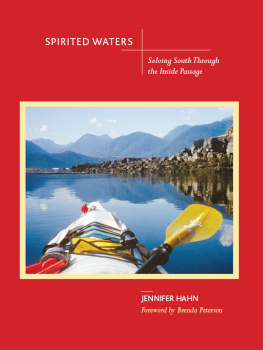
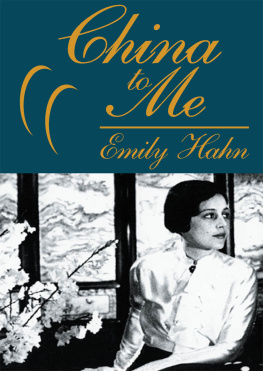
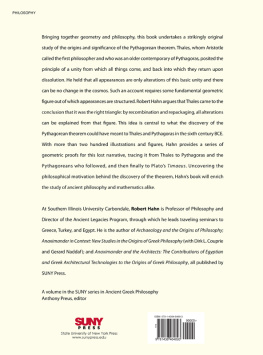


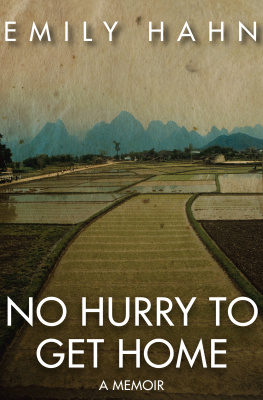
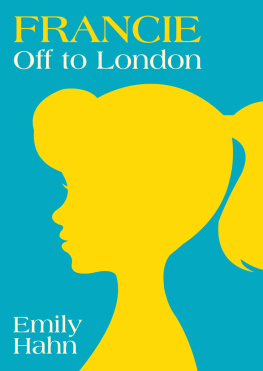


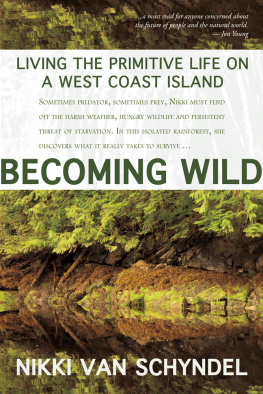
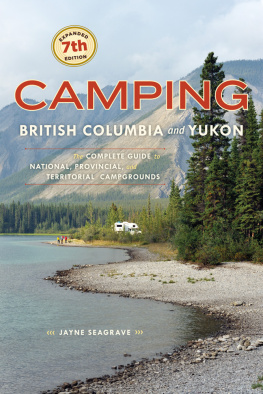
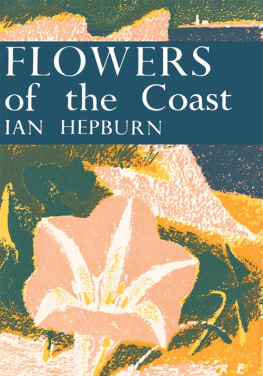
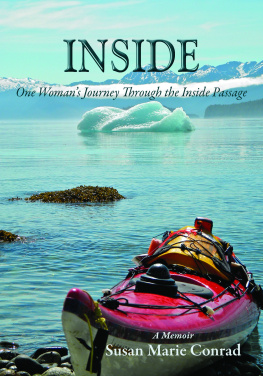
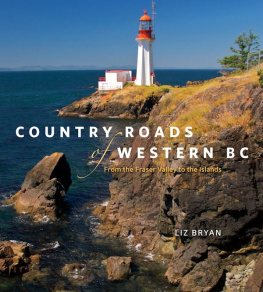
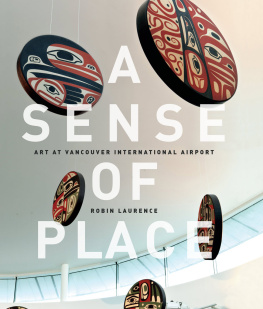
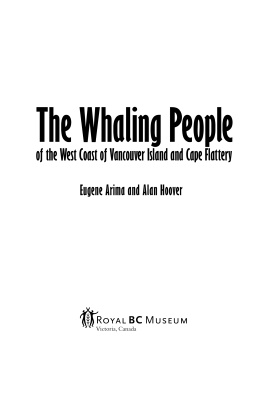



 Printed on recycled paper
Printed on recycled paper
